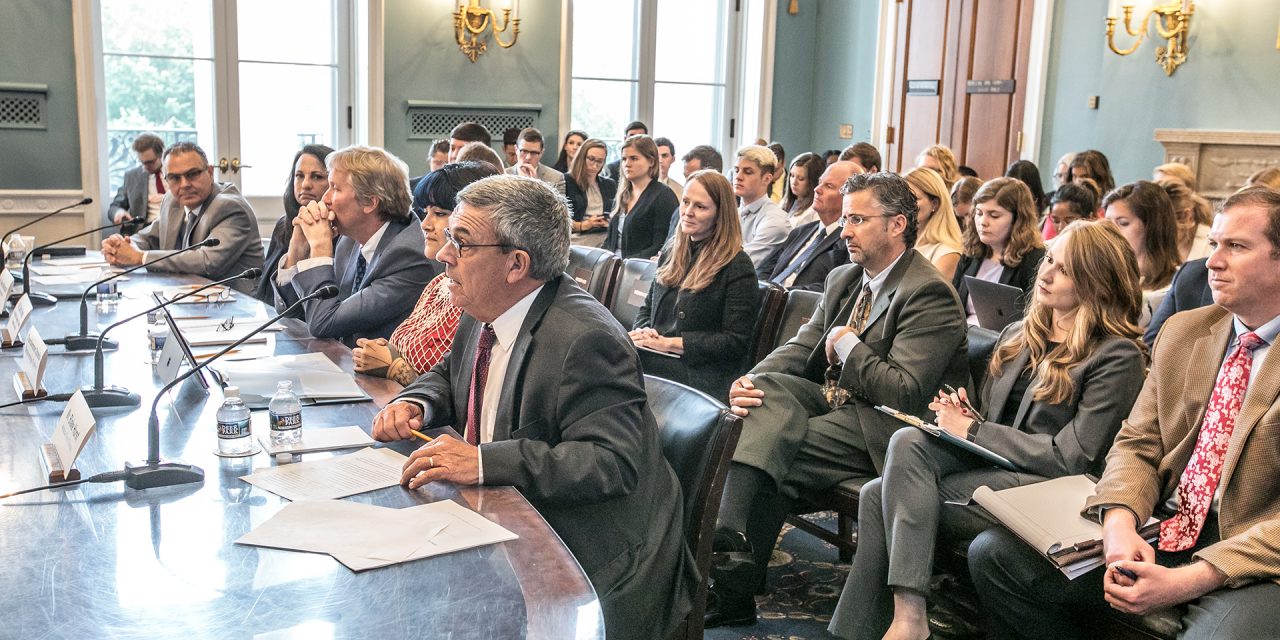Broadband internet has been a hot policy issue in the Missouri legislature the past several years. The United States Congress is also beginning to recognize the importance of this vital technology.
Missouri Farm Bureau President Blake Hurst testified in a July 11 Congressional hearing on the need for greater broadband connectivity. His testimony before a subcommittee of the House Committee on Agriculture emphasized how modern agriculture requires data to thrive.
The vast technological advances broadband can bring to rural America would be an enormous boon for the economy. A U.S. Department of Agriculture study shows that widespread broadband could boost the agricultural economy by about $64.5 billion.
Missouri Congresswoman Vicky Hartzler introduced President Hurst to the Subcommittee. The Congresswoman is the only Missourian on the Agriculture Committee. She was instrumental in inserting a provision into the 2018 Farm Bill defining high-speed broadband as 25 Mbps download and 3 Mbps upload. This ensures tax dollars will go towards true broadband deployment, not glorified dial-up service.
Connected technologies can help farmers use resources in a more targeted manner. Existing technologies like cloud-connected planters, irrigators, tractors and harvesters can automatically change application rates for seed, fertilizer and more. This precision is good for the land, enabling farmers to use data to apply less water, protect soil health and precisely plant seeds.
President Hurst testified, “After we collect this data, we must transfer it from our machines to the company who writes our ‘prescriptions,’ share it with our partners who supply our seed, and eventually utilize it when making crop insurance and other business decisions. Transferring this data, which is essential to the future success of every farmer, requires access to fast, reliable and affordable broadband.”
Technology is also changing the way farmers raise animals, improving their health and welfare. President Hurst told the committee, “From monitoring feed usage and rations to scheduling delivery of animals, livestock farmers use broadband daily to improve the efficiency of their operations and ensure the health of their herds … All the data collected can be compiled into production reports which help farmers make more informed decisions about their farm and ranch.”
Many in Congress have recognized rural America’s broadband needs, including many of Missouri’s own representatives. Yet much more needs to be done. As President Hurst said in his testimony, “Rural broadband (fixed and mobile) is essential to modern agriculture, the farmers and ranchers who grow our food and the quality of life for rural Americans. Broadband is no longer a luxury, it’s a necessity.”


